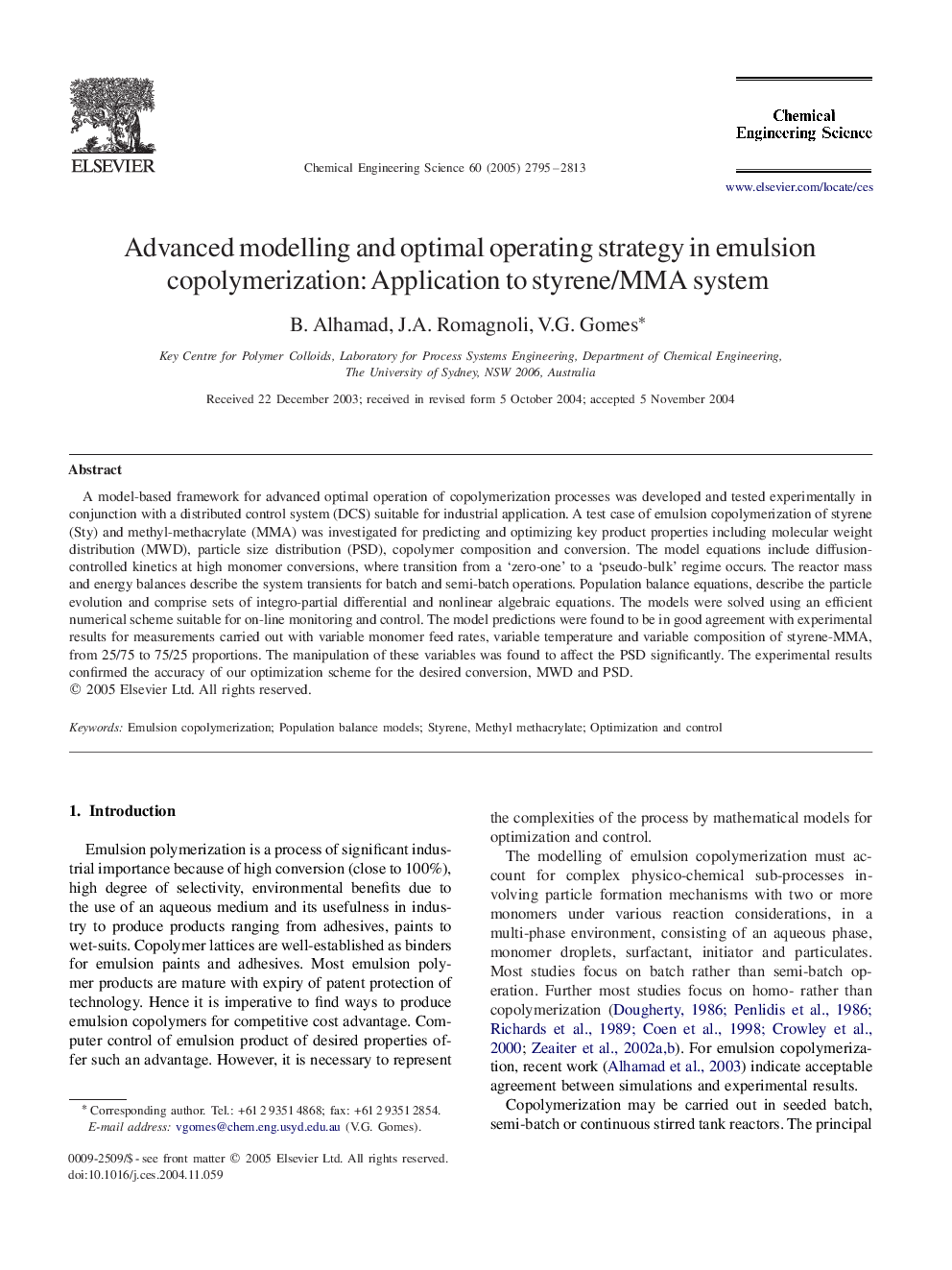| Article ID | Journal | Published Year | Pages | File Type |
|---|---|---|---|---|
| 160334 | Chemical Engineering Science | 2005 | 19 Pages |
A model-based framework for advanced optimal operation of copolymerization processes was developed and tested experimentally in conjunction with a distributed control system (DCS) suitable for industrial application. A test case of emulsion copolymerization of styrene (Sty) and methyl-methacrylate (MMA) was investigated for predicting and optimizing key product properties including molecular weight distribution (MWD), particle size distribution (PSD), copolymer composition and conversion. The model equations include diffusion-controlled kinetics at high monomer conversions, where transition from a ‘zero-one’ to a ‘pseudo-bulk’ regime occurs. The reactor mass and energy balances describe the system transients for batch and semi-batch operations. Population balance equations, describe the particle evolution and comprise sets of integro-partial differential and nonlinear algebraic equations. The models were solved using an efficient numerical scheme suitable for on-line monitoring and control. The model predictions were found to be in good agreement with experimental results for measurements carried out with variable monomer feed rates, variable temperature and variable composition of styrene-MMA, from 25/75 to 75/25 proportions. The manipulation of these variables was found to affect the PSD significantly. The experimental results confirmed the accuracy of our optimization scheme for the desired conversion, MWD and PSD.
